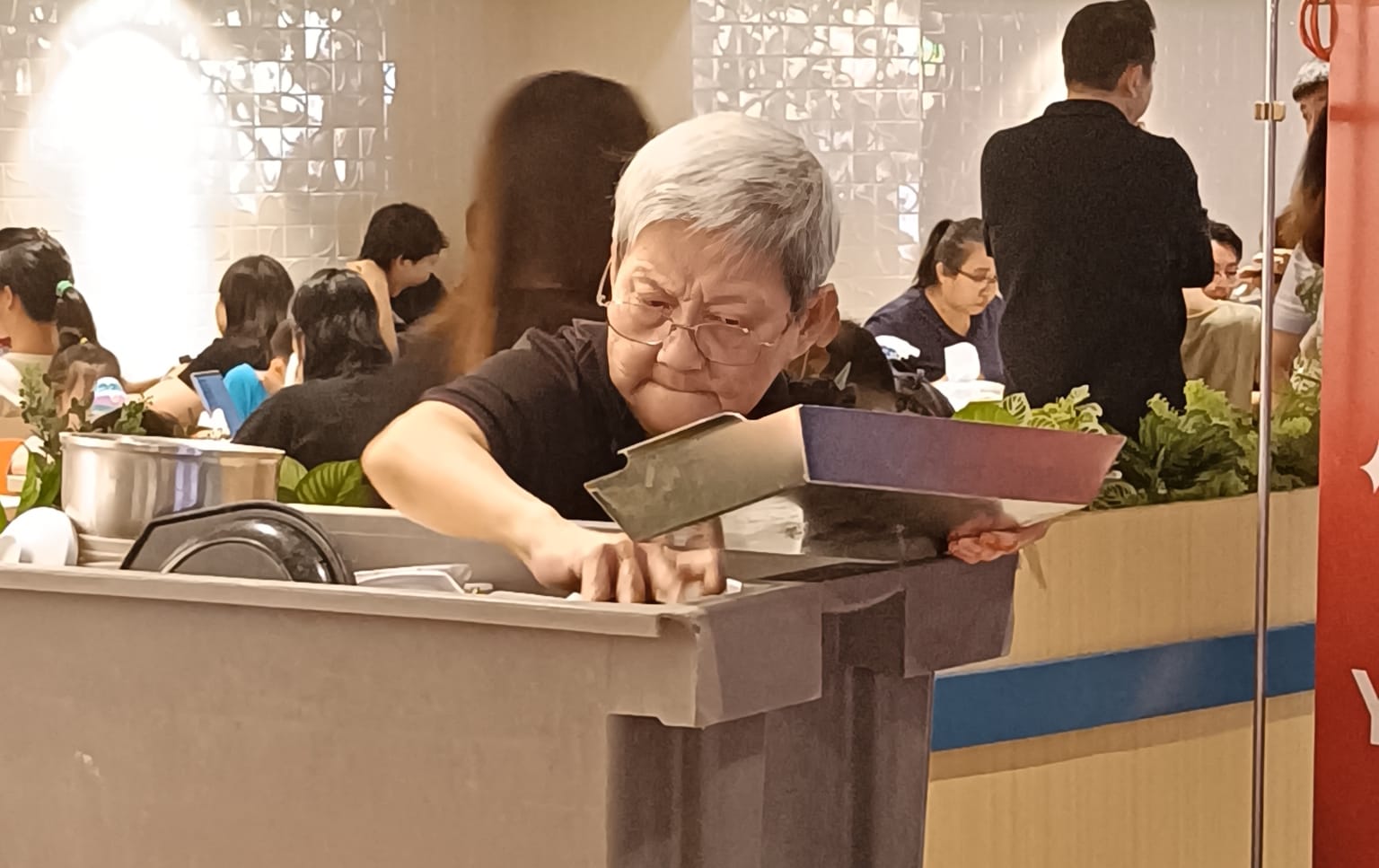Still in Singapore’s Rat Race: Why Older Women Won’t Retire
Published on 09 June 2025
Cleaning tables and clearing trays and facing ageism in their workplace - many women like Ms. Angelina Lim are unable to stop working. The rising cost of living in Singapore has caused many women aged 60-64 unable to retire with a peace of mind.

Although these women have passed the current retirement age, personal circumstances and family commitments leading to financial stress have pushed them to continue working hard.
While others are holding their grandchildren or catching up with friends, Ms. Angelina Lim, aged 64, works tirelessly through old age to support her ex-colleague turned housemate and an older sister with cancer.
“In Singapore, you have to work because of your lifestyle. I think I'm still fit and I like to work because I like to meet people. But mainly [it] is the money, [the] dollar sign,” said Ms. Lim.
According to the Ministry of Manpower, there is an increase in the number of female residents in the labour force, particularly those aged 60-64.
While retirement age is increasing, not enough has been discussed about women working past their retirement age. For them, retirement is not a right, but a privilege they cannot afford.
Ms. Lim has worked at companies like Hewlett Packard, SingHealth, and the Ministry of Manpower (MoM). Despite having been scammed of almost $10,000, battling nose cancer and earning a living for her loved ones, her outlook on life remains positive. Though past her retirement age, she is thankful for a job with the Institute of Singapore Chartered Accountants (ISCA).
Nonetheless, not all are as fortunate. She added that elderly workers like her with hearing issues have a lower chance of employment, amplifying a real issue of workplace discrimination.
When asked about retirement plans, she replied, “No retirement. Like you said, Singapore’s standard of living is very high.” She feels the government is not doing enough for people her age, be it for housing or any subsidies.
While people can argue that women aged 60-64 should be retiring, Dr. Michelle Kung, aged 49, CEO of Elgin Global, explains otherwise.
“Currently, it’s not old enough. Yeah, and a lot of ambitious women, they are still working at this age.” She noted that some positions require a lot of connections and resources, especially with corporate positions that utilise more mental than physical energy.
More higher-ranking women in companies are increasingly seen dominating these roles in the present age.
Dr. Michelle Kung also pointed out the difficulties of women in this age group re-entering the workforce, highlighting the need for employment policies and quotas supporting them.
While the government determines the official retirement age, the elderly should ultimately choose when they decide to stop working. If the costs of living in Singapore keep rising, the government should step in and implement further measures to support them.
Some may choose to stop working, while others may wish to continue. Ultimately, there is nothing wrong with either choice, and whether it is due to financial insecurity, or personal ambitions, staying in the local workforce is a tough decision. The rat race never ends in Singapore, and we need to stay resilient and be adaptable to change.
Word count: 500
Keyword tags: #AgeingFemaleWorkforce #Womenaged60-64 #RetirementRedefined #SingaporeLabourTrends #RisingCostofLiving